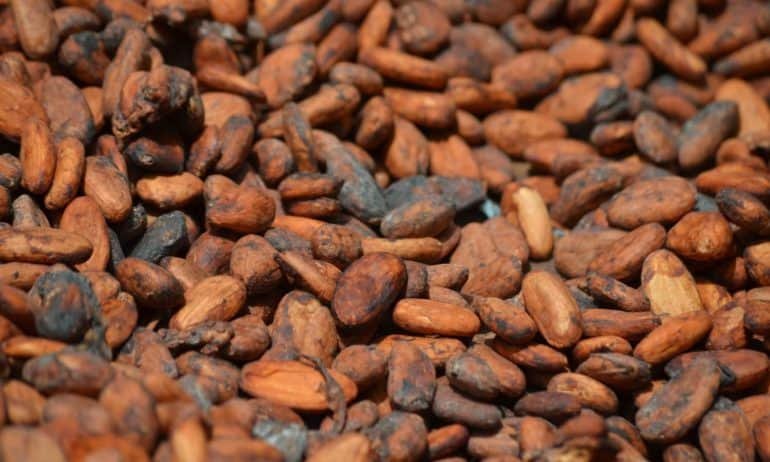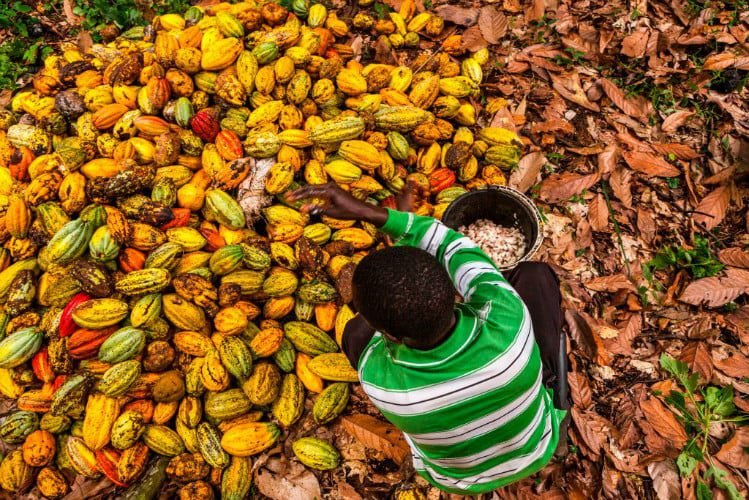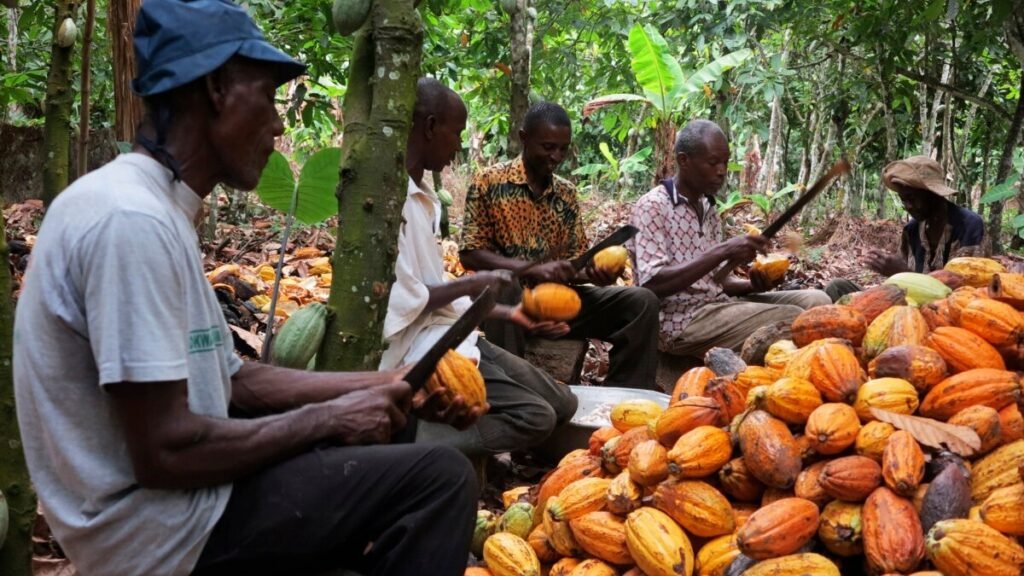Cocoa Industry. The Sweet Success Story of the no. 1 Cash Crop commodity in Ghana.


Introduction:
Ghana, often referred to as the “Gold Coast,” is not only known for its mineral wealth but also for its contributions to the global cocoa industry. Cocoa, the key ingredient in chocolate, plays a crucial role in the country’s economy. In this article, we’ll delve into the world of Ghana’s cocoa industry, exploring its history, significance, challenges, and future prospects.
Historical Background:
Ghana’s cocoa industry has a rich history dating back to the late 19th century. Cocoa was introduced to the country by Tetteh Quarshie, a blacksmith, who smuggled cocoa pods from Fernando Po (now Bioko Island) in Equatorial Guinea. Quarshie planted the first cocoa seeds on his farm in Mampong, and the industry began to take root.

Significance of Ghana’s Cocoa Industry:
Ghana has consistently ranked as one of the world’s top cocoa-producing countries. Cocoa cultivation and exportation have been a significant contributor to the country’s GDP and a crucial source of employment for millions of Ghanaians, particularly smallholder farmers. Cocoa is considered a “cash crop,” and its success or failure greatly impacts the nation’s economy.
Cocoa Farming Process:
Cocoa cultivation is a labor-intensive process. Farmers plant cocoa trees, which can take several years to yield their first cocoa pods. Once ripe, the pods are harvested, and the cocoa beans are extracted from the pods. These beans are then fermented, dried, and eventually sold to cocoa processors or exporters.
Challenges Faced by Cocoa Farmers:
While cocoa farming is a significant source of income for many Ghanaians, it comes with its fair share of challenges. One of the primary issues is aging cocoa trees, which reduces yields. Additionally, diseases, pests, and fluctuating global cocoa prices can impact farmers’ livelihoods. Ghana has taken various initiatives to address these challenges, including re-planting programs and support for sustainable farming practices.

Cocoa Sustainability and Fair Trade:
The importance of sustainability in the cocoa industry has gained significant attention in recent years. Ghana, like other cocoa-producing countries, has taken steps to ensure the long-term viability of cocoa farming. Sustainable practices, fair trade agreements, and ethical sourcing have become integral to the industry, addressing concerns about child labor and environmental impact.
Government Interventions:
The Ghanaian government has played a vital role in supporting the cocoa industry. The Ghana Cocoa Board (COCOBOD) is responsible for regulating and overseeing the sector. COCOBOD sets cocoa prices, provides input subsidies, and offers training and extension services to farmers. These interventions aim to improve cocoa farming techniques and increase productivity.
Economic Impact:
Ghana’s cocoa industry has a profound impact on the nation’s economy. The revenue generated from cocoa exports is used to fund infrastructure development, education, and healthcare. It also helps stabilize the country’s foreign exchange reserves. The industry’s contributions are so significant that fluctuations in global cocoa prices can have a direct impact on the national budget.
Global Trade and Export Partners:
Ghana exports a substantial portion of its cocoa production to international markets. The country has various trading partners, including multinational chocolate manufacturers and cocoa processors. These partnerships are critical in ensuring a steady market for Ghana’s cocoa beans and contribute to the country’s foreign exchange earnings.
Challenges to the Cocoa Industry:
Despite its historical success, Ghana’s cocoa industry faces several challenges. One of the most pressing issues is climate change, which can affect cocoa tree growth and production. Additionally, there are concerns about the aging cocoa farming population and the need to attract younger generations to the industry. Child labor issues and the quest for fair and ethical trade practices also persist.
The Future of Ghana’s Cocoa Industry:
The Ghanaian government, along with various stakeholders, is actively working on strategies to secure the future of the cocoa industry. These initiatives include the promotion of sustainable farming practices, encouraging younger individuals to engage in cocoa farming, and continued efforts to ensure ethical sourcing. Ghana aims to maintain its status as a global leader in cocoa production while addressing the industry’s challenges.

Conclusion:
Ghana’s cocoa industry is not only a source of delicious chocolate but also a critical component of the country’s economy and culture. The challenges it faces are substantial, but with innovation, sustainable practices, and international collaboration, the future of this industry looks promising. As Ghana continues to nurture its cocoa sector, it remains a testament to the country’s historical role as a beacon for cocoa production in West Africa and the world.













